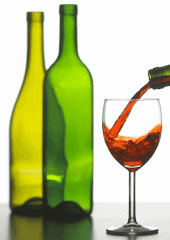
Anywhere between 75% and 92% of dependent drinkers are not in treatment at any one time.
This “treatment gap” – the difference between those identified with a problem and those accepting help for it – is the largest for any identifiable condition. It is also the big challenge for the alcohol treatment field. How do we bridge the treatment gap?
Too often the response to people with alcohol problems has relied on individuals seeking help themselves. This approach only helps a small, motivated, minority. As one frontline worker said: ‘The alcohol agency relies on clients being motivated…Often if people don’t attend a couple of appointments their case is closed.’
This approach may be understandable in the context of a sector facing significant cuts; however, it means that some of the most vulnerable, risky and chaotic clients are left without help. Some may ask, ‘why bother, why not focus on those who want help?‘ However, our work suggests that these change resistant drinkers are among the most challenging and resource intensive of the clients faced by public services.
The Blue Light project is Alcohol Change UK’s national initiative to develop alternative approaches and care pathways for change resistant drinkers who place a huge burden on public services. These include the frequent hospital attenders, the repeat offenders and those committing anti-social behaviour. In an area with a population of 250,000, the Blue Light project estimated that there are around 250 Blue Light clients who cost at least £12–13 million each year across a range of agencies.
The project has shown that there are positive strategies that can be used with this client group. Moreover, this approach will save money and resources. The Blue Light manual outlining the core approach is available at: https://alcoholchange.org.uk/help-and-support/get-help-now/for-practitioners/blue-light-training
This initiative has been developed in partnership with Public Health England and over 60 local authorities across England and Wales.
In the last few months, we have published a report Learning from Tragedies. The report, published by Alcohol Change UK, analyses all 11 Safeguarding Adult Reviews (SARs) from England in 2017 in which alcohol was identified as a significant factor in the person’s life and/or death. It charts the stories of people who died in the most tragic of circumstances at a time when they were at their most vulnerable. The report highlights the role that alcohol plays in those situations where vulnerable adults die and draws out essential lessons that may prevent similar tragedies from being repeated.
You can read the report at: https://alcoholchange.org.uk/publication/learning-from-tragedies-an-analysis-of-alcohol-related-safeguarding-adult-reviews-published-in-2017
Both the Blue Light project and the report on SARs highlight the need to transform the local response to people with alcohol problems. Therefore, over the last three to four years, Alcohol Change UK has begun to integrate the project’s findings into local practice through a series of local pilots in areas such as: Sandwell, Northumberland, Lincolnshire, Medway, Devon and Westminster. Our work in Sandwell has recently been nominated for a Guardian Award, a Royal Society of Public Health Award and a Mj Award.
The key elements of the local transformation work are:
- Running a senior level strategic workshop to establish understanding and ownership of the approach
- Training of specialist and non-alcohol specialist staff in the Blue Light approach. This will ensure that staff across the health, social care, housing and criminal justice services, are identifying these clients and impacting on their behaviour.
- Train the trainer courses in order to leave a local legacy.
- Working with specialist service staff to review how they can best meet the needs of high impact and change resistant dependent drinkers.
- Developing specifications for specialist services g. assertive outreach.
- Developing a multi-agency operational group to ensure joint management and a persistent targeted focus on the highest impact clients.
- Evaluation of the approach
You can see evaluations of our local projects on the Alcohol Change UK website: www.alcoholchange.org.uk
Our training provides a very clear model of how to work with this client group. This is applicable to both alcohol specialists and non-alcohol specialists such as social workers, nurses, police, community safety and housing staff. If you are interested in training, our wider transformation work or more detail on any aspect of this project please email: mike.ward@alcoholchange.org.uk
Alcohol Change UK are running four open Blue Light training days at their offices in London over the coming months. These days are an excellent development opportunity for practitioners whose work brings them into contact with high-impact drinkers. For dates and further details, please visit the Eventbrite page. Spaces are limited, so we recommend booking as soon as possible.
In addition to the Blue Light training we are also offering motivational interviewing training courses. These two-day courses empower all working in the alcohol sector to develop the knowledge, skills and confidence to use motivational interviewing to enable behaviour change in clients and groups.
Written by Alcohol Change UK Senior Consultant Mike Ward.
All IAS Blogposts are published with the permission of the author. The views expressed are solely the author’s own and do not necessarily represent the views of the Institute of Alcohol Studies.
